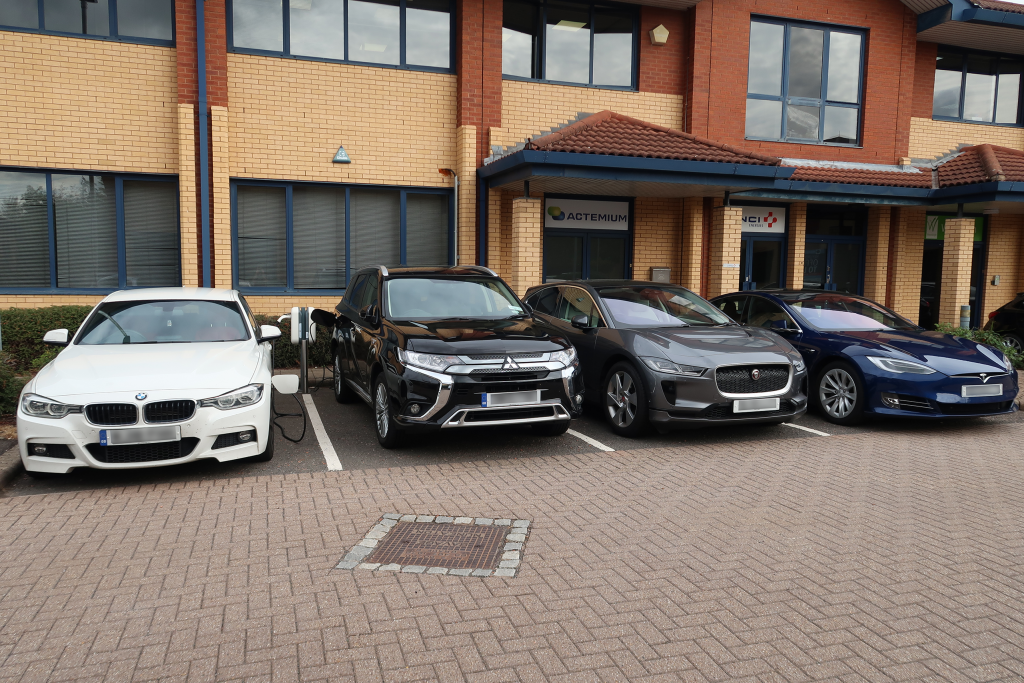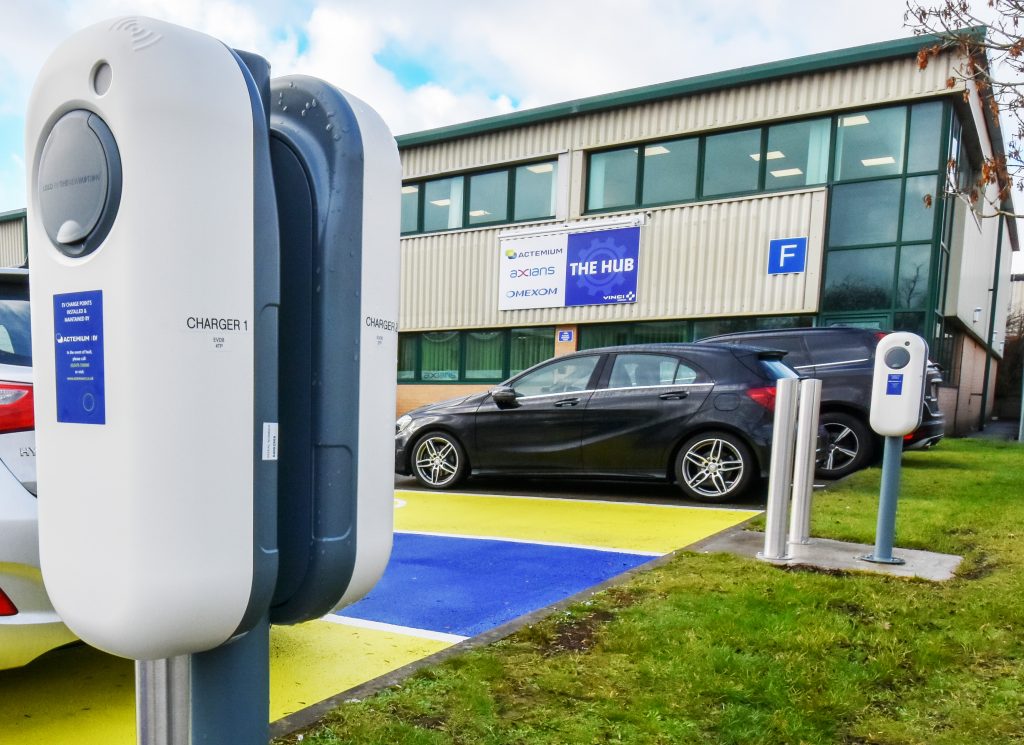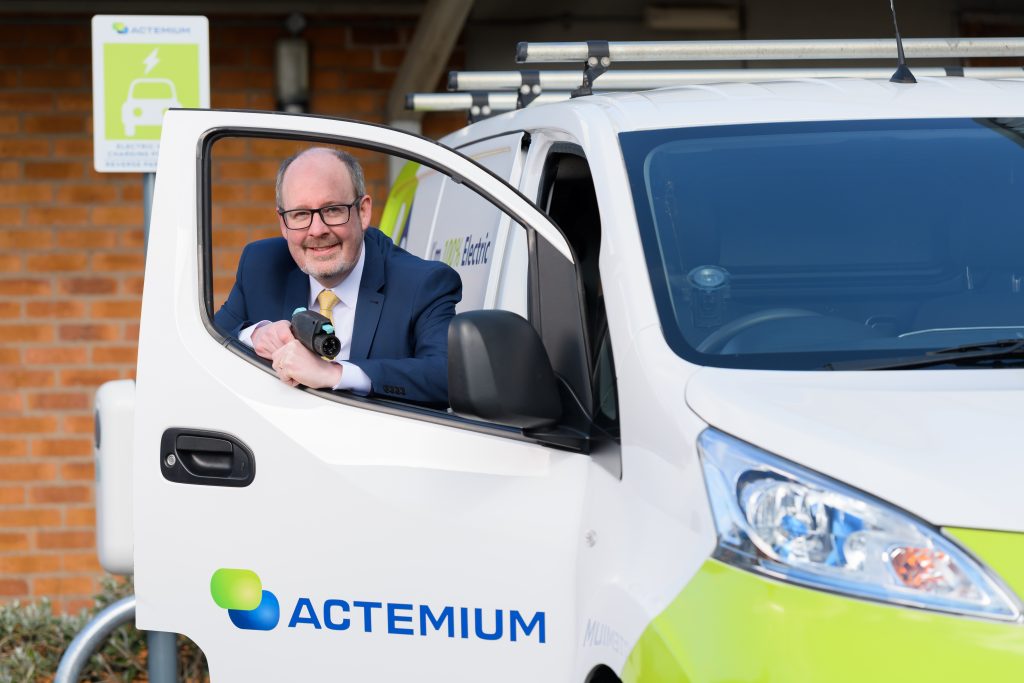Actemium UK industrial perimeter goes all-electric with company car fleet
The VINCI Energies UK & RoI electrical and mechanical services business units are phasing out all diesel and petrol company cars in favour of full EV alternatives. Within four years, the switch is expected to reduce the perimeter’s carbon footprint by at least 44%. In September 2020, VINCI Energies UK & RoI introduced a science-based...
The VINCI Energies UK & RoI electrical and mechanical services business units are phasing out all diesel and petrol company cars in favour of full EV alternatives. Within four years, the switch is expected to reduce the perimeter’s carbon footprint by at least 44%.
In September 2020, VINCI Energies UK & RoI introduced a science-based plan to achieve a 25% reduction in carbon emissions by 2025 and reach carbon neutrality by 2050. Its Actemium UK industrial perimeter (the collection of business units offering electrical and mechanical services to industry) has now taken a major step towards achieving this plan by committing to transition its entire company car fleet to full electric vehicles (EVs).
“Vehicle fuel is by far the largest contributor to our carbon footprint as the nature of our offer requires us to have a lot of people on the road servicing customers. If we can eliminate these emissions by switching to EVs, we can make a large reduction to our overall environmental impact relatively quickly,” says Andrew Hunter, director of the Actemium UK industrial perimeter.
The Actemium UK industrial perimeter has already replaced 10% of its fleet with full EVs since updating the company car policy in line with the new VINCI Energies UK & RoI environmental strategy. The rest will be replaced as their four-year leases come up for renewal so by the end of this year 45-50% of the fleet will be full EVs and by the end of 2024 the entire company car fleet will be electric.
The perimeter has installed EV charging points at most of its sites and plans to add this infrastructure to all sites by the end of 2021. It also offers free EV charging to employees and is replacing all its standard electricity contracts with green tariffs to support the UK and Ireland’s overall transition to renewable energy.

Huge CO2 saving potential
The switch to EVs has been calculated to save 345 g of CO2 per mile travelled. Given the company’s contract engineers and project managers travel an average of 20,588 miles in a year, an entire EV fleet could generate an annual CO2 saving of 241.5 t – or 44% of the organisation’s carbon footprint.
“Environmental care is extremely important to VINCI Energies and this is a change we have been keen to make for several years but unfortunately the timing wasn’t quite right. Now there is a far wider choice of EVs on the market and issues with range, the availability of rapid charging facilities, insurance and maintenance requirements etc. have significantly improved. The performance of today’s EVs is so good, even our diehard petrolheads have been converted!” Andrew says.
The Next Steps
footprint by at least 44%.

In September 2020, VINCI Energies UK & RoI introduced a science-based plan to achieve a 25% reduction in carbon emissions by 2025 and reach carbon neutrality by 2050. Its Actemium UK industrial perimeter (the collection of business units offering electrical and mechanical services to industry) has now taken a major step towards achieving this plan by committing to transition its entire company car fleet to full electric vehicles (EVs).
“Vehicle fuel is by far the largest contributor to our carbon footprint as the nature of our offer requires us to have a lot of people on the road servicing customers. If we can eliminate these emissions by switching to EVs, we can make a large reduction to our overall environmental impact relatively quickly,” says Andrew Hunter, director of the Actemium UK industrial perimeter.
The Actemium UK industrial perimeter has already replaced 10% of its fleet with full EVs since updating the company car policy in line with the new VINCI Energies UK & RoI environmental strategy. The rest will be replaced as their four-year leases come up for renewal so by the end of this year 45-50% of the fleet will be full EVs and by the end of 2024 the entire company car fleet will be electric.
The perimeter has installed EV charging points at most of its sites and plans to add this infrastructure to all sites by the end of 2021. It also offers free EV charging to employees and is replacing all its standard electricity contracts with green tariffs to support the UK and Ireland’s overall transition to renewable energy.
The switch to EVs has been calculated to save 345 g of CO2 per mile travelled. Given the company’s contract engineers and project managers travel an average of 20,588 miles in a year, an entire EV fleet could generate an annual CO2 saving of 241.5 t – or 44% of the organisation’s carbon footprint.
“Environmental care is extremely important to VINCI Energies and this is a change we have been keen to make for several years but unfortunately the timing wasn’t quite right. Now there is a far wider choice of EVs on the market and issues with range, the availability of rapid charging facilities, insurance and maintenance requirements etc. have significantly improved. The performance of today’s EVs is so good, even our diehard petrolheads have been converted!” Andrew says.
The next steps
The next stage of Actemium UK industrial perimeter’s EV journey is to encourage employees to choose EVs for private cars used on company business and switch its van fleet to electric, which is expected to reduce carbon emissions by a further 5.5% and 13.5% respectively. The organisation currently runs three fully electric vans and plans to add three more in 2022.

“We hope to electrify our van fleet within the next two years if possible so we can enhance the already considerable savings we are achieving through electrifying our company car fleet,” Andrew explains.
The Actemium UK industrial perimeter has one of the largest company car fleets within VINCI Energies UK & RoI, as well as the technical expertise in planning and installing EV charging and associated energy storage solutions – a service it offers to customers.
“Becoming an early adopter sends a strong message to our customers – not only regarding our care for the environment but also our belief in EV technologies and our capabilities as a long-established charging infrastructure provider. In addition, we will be sharing all lessons learned and expect our EV fleets to serve as a model for the rest of VINCI Energies UK & RoI to follow, reducing our overall environmental impact even further.” he concludes

